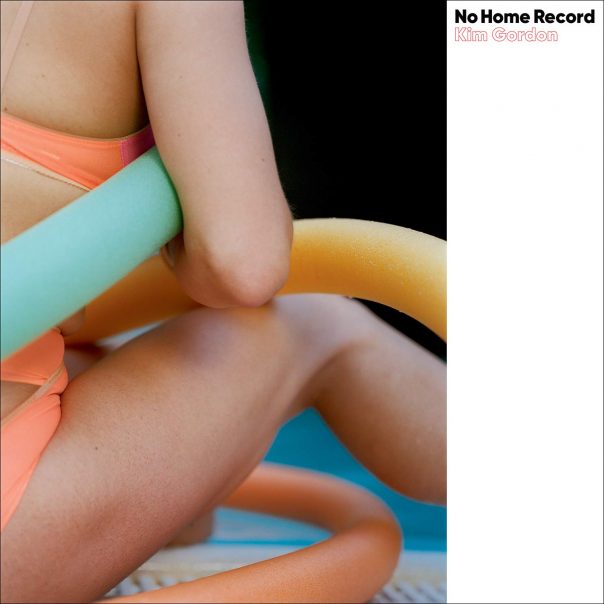ALBUM REVIEW: Kim Gordon pushes the boundaries on ‘No Home Record’

Kim Gordon’s No Home Record reminds me a little of the episode of The Simpsons in which Barney, the town drunk—after a successful run in the local barbershop quartet—begins dating a Yoko Ono type. At the bar, she orders “a single plum, floating in perfume, served in a man’s hat.” Some art attacks the status quo so directly with its outré vibe that it may appear to have little value outside its antagonism.
No Home Record
Kim Gordon
Matador Records, Oct. 11
On first listen, this new solo album from the former bassist and vocalist for legendary art rockers Sonic Youth may sound like little more than a noisy, hasty and disorganized attack on contemporary pop music. After a couple listens, the LP becomes much more nourishing—and frankly delicious—than drinking eau de toilette from a crummy chapeau.
The album opens with breathy and droning woodwinds before mechanistic thuds and Gordon’s instantly recognizable voice abruptly enter. “Sketch Artist” evolves into a clattering, shambling groove featuring disparate digital instrumentation that scampers in and out of the song’s beat like animals playing in traffic.
No Home Record was produced by Justin Raisen, who worked with Angel Olsen on her breakout 2016 album, My Woman—with additional contributions from Ariel Pink, Michael Stipe and Billy Corgan.
The punk vibe of “Air BnB” more closely resembles Sonic Youth’s scrambled guitar noise, but the vibe is especially well-suited to Gordon’s critique of the home-sharing website. She provides a sheen of disenfranchisement as she intones, “Air B and B, gonna set me free.” Gordon’s off-key caterwaul remains as instantly recognizable as during her Sonic Youth days. Songs like “Hungry Baby” and “Earthquake” also have the Sonic Youth vein, while the others shine in new and interesting ways.
The drum loops and bass lines on single “Murdered Out” evoke West Coast hip-hop, punctuated by guitar noise. On “Don’t Play It,” intestine-shaking sub-octaves throb beneath repetitive, Fatboy-Slim-like button pushing and knob twisting. Over this, Gordon spits a series of lyrical injunctions in a style vaguely reminiscent of English rapper M.I.A. “Cookie Butter” delivers yet another drum machine groove, over which Gordon provides lyrical litany. A distorted bass outro rounds out the song’s nearly seven-minute runtime. Here, Gordon takes a more commanding presence than she did in the past.
Deeper cuts harken back to the more guitar-oriented sound of Sonic Youth but center on the often-uncomfortable experience of being a woman in the world of rock and roll. The noisy and feedback-laden “Hungry Baby” paints a gnarled picture with sheets of of snarling distortion. Gordon’s vocals become more melodic than her spoken word style, but musically, the song sounds like an 8-bit version of The Stooges. Devolved and blown out, the simple arrangement and vocal intensity remains as potent as ever.
On “Earthquake,” angular and throbbing guitar recall Sonic Youth’s later albums, providing a lush bed of sound. Gordon weaves a complex and discordant vocal melody: “You want me to be you when you dwell.”
In terms of content, much of the album is a critique of late-capitalism. From the anti-commodity fetishism in “Murdered Out” to the gig economy’s false promises in “Air BnB,” Gordon preoccupies herself with the dehumanizing contradictions of unfettered market culture. This critique is given its most explicit voicing on the album’s last song, “Get Yr Life Back.” Sonic Youth fans may feel a pang of nostalgia at seeing the band’s traditional abbreviation for “your” on the track’s title. Over tremolo feedback, Gordon sings, “The end of capitalism/ When ism/ Loses Louis the Fifth/ Lyrical waxing jumping off a cliff.”
No Home Record may not be everyone’s cup of tea. Many will be put off by the album’s discordant and chaotic sounds, but being weird has never been a problem for Kim Gordon. Sonic Youth fans will likely find plenty to love on Gordon’s latest, which both updates and personalizes the musical persona she forged with that legendary group.
Follow writer David Gill at Twitter.com/Songotaku.
